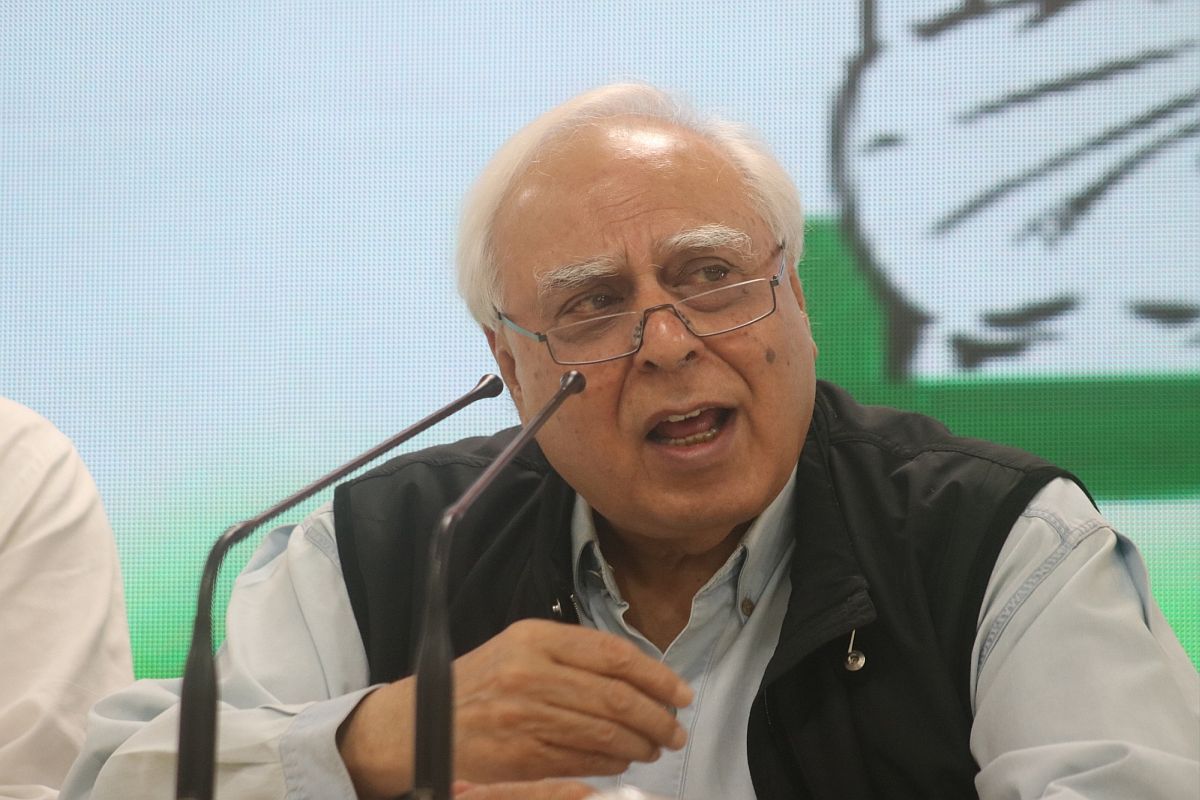Rahul Gandhi hits out at PM, Adani in Rae Bareli
Congress leader Rahul Gandhi on Friday hit out against Prime Minister Narendra Modi and Industrialist Gautam Adani on the second day of his Rae Bareli visit.
Congress leader Rahul Gandhi had earlier on Friday termed the corporate tax cut a ‘panic reaction’ by the government and linked it to the ‘Howdy, Modi’ event in Houston.

Senior Congress leader Kapil Sibal (File Photo: IANS)
Senior Congress leader Kapil Sibal on Saturday criticised the Government over the corporate tax rate cut alleging that the rich will benefit while the poor left to fend for themselves.
In a big move, the Government on Friday announced the slashing of corporate tax down to 25.17 per cent for domestic companies and offered a lower rate to 17.01 per cent for new manufacturing firms to boost economic growth rate from a six-year low by incentivising investments to help create jobs.
Advertisement
Taking a dig at the PM Modi’s Houston event and the new tax rate cut, Sibal tweeted: “Howdy, Modi”. Corporate Diwali. India foregoes 1.45 lakh cr. revenue. Need Diwali for needy folk!”
Advertisement
“Extra money in corporate hands will not boost demand. Need extra money in hands of rural India to spur consumption. The rich will benefit. The poor left to fend for themselves,” he further said.
Howdy Modi
Corporate Diwali
India foregoes 1.45 lakh cr. revenue
Need Diwali for needy folk !
Extra money in corporate hands will not boost demand . Need extra money in hands of rural India to spur consumption.
The rich will benefit
The poor left to fend for themselves— Kapil Sibal (@KapilSibal) September 21, 2019
The Congress had termed the financial package of Finance Minister Nirmala Sitharaman an economic and political disaster.
Congress leader Rahul Gandhi had earlier on Friday termed the corporate tax cut a “panic reaction” by the government and linked it to the “Howdy, Modi” event in Houston, saying he is “amazed at what Narendra Modi can do for a stock market bump” before the community event.
Amazing what PM is ready to do for a stock market bump during his #HowdyIndianEconomy jamboree.
At + 1.4 Lakh Crore Rs. the Houston event is the world’s most expensive event, ever!
But, no event can hide the reality of the economic mess “HowdyModi” has driven India into.
— Rahul Gandhi (@RahulGandhi) September 20, 2019
Meanwhile, Prime Minister Narendra Modi lauded the corporate tax rate cut as ‘historic’, calling it a win-win for 130 crore Indians.
Making the announcement, Nirmala Sitharaman said the new tax rate will be applicable from the current fiscal which began on April 1.
In the past few weeks, the government has announced a series of steps to boost growth that had fallen to a six-year low of 5 per cent in June quarter.
Advertisement